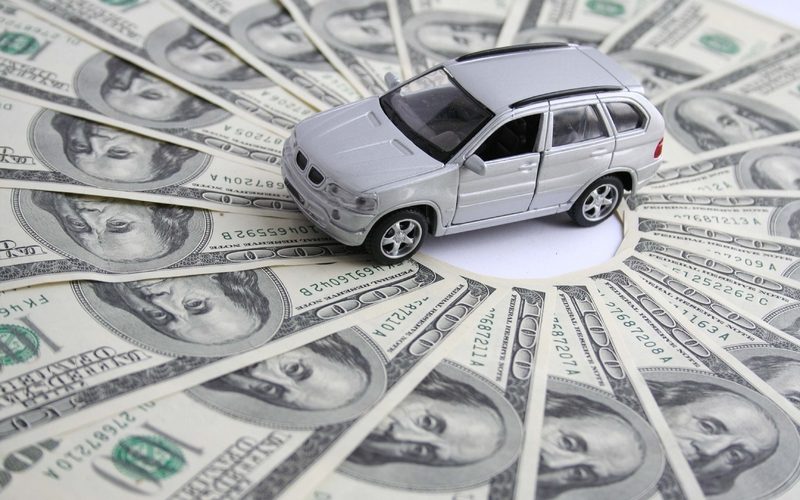If you’re considering a car title loan, you’ve probably encountered some unexpected expenditures. Maybe your car broke down and you need it mended right away so you can keep your work. Or maybe your roof started leaking after a storm, and you can’t wait months for your insurance adjuster to pay the claim. Many Americans are in financial distress and don’t have many options for borrowing money quickly. This is where car title loans come into play. Let’s see how car title loans work and see a review of the best car title loans lenders.
What are Car Title Loans?
Car title loans are short-term loans in which the borrower pledges his or her car as security. They are also referred to as auto title loans. To qualify for a car title loan, the borrower must own their car outright. If the borrower fails to repay the loan, the lender seizes possession of the car and may sell it to recoup their principal.
Important Takeaways
- Car title loans are secured short-term loans that use the borrower’s car as collateral.
- They are connected with subprime lending since they frequently involve high-interest rates and consumers with bad credit.
- Additional actions, such as installing GPS trackers on the car to aid in prospective repossession, are sometimes necessary to lower the lender’s risk.
How Do Car Title Loans Work?
A borrower must own their vehicle free and clear and show a lien-free title to the lender to qualify for a car title loan. A valid ID, current vehicle registration, evidence of insurance, domicile, and income are also necessary. Some lenders may want keys to the car or insist on GPS tracking devices being installed.
Although the amount of a car title loan is determined by the value of the vehicle, it is normally limited to half of the automobile’s current value. These loans are typically 15 or 30 days in duration and feature a three-digit annual percentage rate (APR), which is significantly higher than the interest rates connected with standard bank loans.
How Typical Car Title loans work
- You need a $1,000 loan for 30 days.
- The finance charge is 25%. That means you must pay $250 to borrow $1,000.
- You hand over the title to your car to the lender, and the lender provides you $1,000 in cash.
- When it comes time to return the lender in 30 days, you must pay $1,250 plus any other fees imposed by the lender.
Costs rise as rollovers occur. If you are unable to repay car title loans when it is due, the lender may allow you to roll it over into a new loan, similar to how payday loans work. However, rolling over the loan will result in additional interest and fees being added to the amount owed.
How Typical Car Title Loans Rollover Work:
- In the preceding example, instead of paying on the initial due date, you roll over the 30-day, $1,000 loan for another 30 days. The rollover will add an additional $250 in finance fees, as well as any other fees, to the amount you owe.
- That $250 is added to the $1,250 you already owe, for a total of $1,500, plus any other fees levied by the lender for the rollover.
- The rollover reduces your borrowing cost of $1,000 for 60 days to at least $500.
You may lose your vehicle. If you are unable to settle the debt, the lender may repossess your vehicle, even if you have been making partial payments. When you acquire the loan, some lenders insist on installing GPS and starter interrupt devices so that they can remotely locate the vehicle and deactivate its ignition system, making repossession easy.
When your lender repossesses your vehicle, they have the option to sell it, leaving you without transportation. In some places, lenders can keep all of the proceeds from the sale of the vehicle, even if they receive more than you owe.
How much Money can you get with Car Title Loans?
Typically, you can borrow between 25% and 50% of the car’s worth. The average loan amount, according to the FTC, is $100 to $5,500, but some lenders enable you to borrow up to $10,000, or even more.
When you’re authorized for a loan, you’ll hand over the title to your car to the lender. Although you can continue to drive your car, some lenders may install a GPS tracking device to keep track of it. They may also produce a duplicate of your keys. Both of these strategies can assist lenders in repossessing your car if you default on your loan.
Loan terms are normally 15 to 30 days, however, they can extend up to a year.
When are Car Title Loans Necessary?
According to the Consumer Financial Protection Bureau (CFPB), 20% of car title loan borrowers have their car seized if they are unable to repay their loan in full. Car title loan companies make the most of their money from borrowers who constantly take out new loans to pay off their old ones. More than half of auto title loans result in long-term debt, and more than four out of every five auto loans are reborrowed because borrowers are unable to pay them off in full with a single payment.
As a result, you should consider alternative financing options before taking out a title loan. Alternative payday loans from credit unions, personal loans from online lenders, credit cards, and even borrowing money from friends and relatives are all preferable to losing your vehicle.
What Should I Look for When Applying for a Payday or Car Title Loan?
Payday and title loans are treated similarly to other types of credit by federal law: lenders must inform you of the loan’s cost in writing before you sign the loan agreement. They must inform you of the finance fee, which is a monetary amount, as well as the APR, which is a percentage. The APR is determined by the amount borrowed, the monthly finance charge, the expenses you must pay (such as processing fees, document fees, and other charges), and the length of time you borrow the money. To compare the cost of borrowing money from different lenders, use the APR. It’s the clearest method to know how much a loan costs.
Check the loan agreement carefully to determine if there are any additional costs or fees. Late or returned check fees are examples of this. There may also be fees if the loan is rolled over.
Also, inquire with your state’s attorney general or state regulator regarding your state’s payday and title lending regulations. Several states use small loan rate limitations or other steps to shield individuals against high-cost payday lending. Many states also need lenders to be licensed to conduct business in the state.
Car Title Loans Real World Example
Taylor recently lost their job and is fighting to make ends meet for their next rent payment. They decide to borrow money using a car title loan against their car, which has a current market value of $2,500, as a short-term option. The loan provider agrees to extend a $1,250 car title loan.
Taylor was asked to produce confirmation of title to the car as well as additional papers throughout the application process. The advertised interest rate was 20% for the loan’s one-month term, but Taylor made the error of assuming the interest rate was annualized. The genuine annualized interest rate was 240 percent, far higher than Taylor would have willingly taken.
Taylor was obliged to repay $1,500 before the conclusion of the one-month term, which was much more than the estimated $1,270. Taylor was unable to obtain the additional $230 due to their dire financial circumstances and was thus forced to relinquish the title to their car.
Why are Car Title Loans Risky?
Consider car title loans to be the big brother of payday loans.
While interest rates on car title loans are lower than those on payday loans, which can have APRs of up to 1,000%, they are by no means affordable. The upper limit of “affordable” is commonly thought to be 36 percent APR. Car title loans are made even more expensive by the fees and cyclical borrowing associated with them.
And if you do not pay on time, you may lose your automobile. According to a Consumer Financial Protection Bureau survey, 20% of people who take for a short-term, single-payment car title loan will have their cars repossessed.
The CFPB discovered that car title loans might also lead to a debt cycle. The great majority of borrowers with single-payment loans renew their car title loans many times, incurring costs each time. According to the CFPB, just 12% of single-payment borrowers repay without renewing their loan. One-third of the remaining debtors had their loans renewed seven times or more. That would amount to at least $1,750 in costs for a $1,000 loan.
Does Paying Off Car Title Loans Improve Credit?
In a nutshell, no: Because the lender does not record your payments to credit bureaus, repaying the loan does not help you build credit. If you don’t pay, the lender will most likely not send you to collections, which will harm your credit; instead, it will simply repossess your car to repay the obligation.
The Benefits and Drawbacks of Car Title Loans
Review the benefits and drawbacks of a title loan before proceeding. This might assist you in determining whether it is the appropriate option for you.
Advantages of Car Title Loans
#1. No credit check:
The majority of title loans do not necessitate a credit check. This is wonderful news if you need to borrow money, have explored all other options, and do not have good enough credit to qualify for a standard loan.
#2. Quick approval and access to funds:
Because there is no credit check, lenders can review your application and car in a matter of minutes. Once accepted, you can expect to receive payments within a couple of days.
The Drawbacks of Car Title Loans
#1. Potential debt trap:
According to the Consumer Financial Protection Bureau, more than half of auto title loans become debt problems for borrowers. This means that debtors continue to take out new loans to repay old ones, perpetuating a never-ending cycle of debt. It’s damaging and dangerous, leaving you in debt for months after you borrow.
#2. Exorbitant interest and fees:
APRs for title loans can be as much as 300%, due to interest rates, finance charges, and other fees. These fees build up and only make your financial burdens worse.
#3. Short repayment terms:
Title loans are often due within 15 to 30 days. In comparison, standard loans often have repayment durations ranging from six months to three years, depending on the amount borrowed. A 15- to 30-day repayment period may not always provide you with enough time to obtain the finances to repay the loan plus the hefty APR.
#4. You could lose the following assets:
Car title loans can put you in a terrible situation, forcing you to choose between continuing to accumulate a massive financial burden and handing over your car. To prevent the possible hassles that title loans might entail, keep up with your payments.
Report Fraud or Deceit
If you believe a payday or car title lender has defrauded you, call your state’s attorney general or consumer protection office. Report any fraud to the Federal Trade Commission at ReportFraud.ftc.gov. Individual complaints are not resolved by the FTC, but your report assists law enforcement in detecting patterns of wrongdoing and may lead to an investigation.
Car Title Loans Providers
So, with all of that said, how can you know which car title loan provider to use? There are many of them, and some of them are less than reputable in how they treat clients. Before you commit to a car title loan, consider the following factors:
#1. Reputation
First and foremost, what do others have to say about their experiences with a specific lender? Was the borrowing procedure completely clear – that is, did they know exactly what they were getting from start to finish? A positive Better Business Bureau rating is another indication that you can rely on a specific car title loan firm.
#2. Rates of interest.
What will the total cost of your loan be?
#3. Terms of Repayment
How long do you have to repay your loan in full? Will there be ample time to make all payments on or before the due date?
#4. Convenience.
How simple is it to obtain a car title loan? When will your loan funds be deposited or paid by check? Is it necessary to bring your title to an in-person place, and if so, where can you do so?
Businessyield has analyzed and ranked the best suppliers of car title loans available today. We are convinced that this information will assist you in obtaining the funds you require with loan conditions that you can afford!
Reviews of 2023 Car Title Loans Providers
#1. Max Cash Title Loans
Max Cash Title Loans is the largest lender in our review, serving over a million customers nationwide. You won’t find another car title loan company that operates in 49 of the 50 states: most of Max Cash’s competitors only have a few locations. Max Cash is the obvious choice for most people searching for a car title loan, with affordable interest rates, simple alternatives for receiving your funds, and an excellent customer service team.
#2. Loan Mart
LoanMart is a fantastic option for obtaining a car title loan if you live in one of the eight states where they operate. They make it incredibly simple to apply for a loan and collect your money, all online if you like, and without having to carry your title into a physical office. LoanMart is one of our top selections for car title loans, with an “A+” rating from the Better Business Bureau and a lot of good feedback from customers.
#3. Loan Center
Loan Center provides car title loans in eight different states. Their interest rates are affordable on loans up to $30,000, and except for a phone call to finish your application, you may complete your loan entirely online. Loan Center’s parent firm has an “A+” rating with the Better Business Bureau, making this a service to consider if you live in one of the states where they offer car title loans.
#4. American Auto Title loan
The tiny engine that couldn’t is American Auto Title Loan. Until you try to apply, the website creates the idea that it is a decent location to receive a loan. No one answered the phone when they dialed their toll-free number. If you can reach a loan specialist, you might be able to acquire an excellent car title loan here; over 400 customers gave the organization a 5-star rating. However, if you like a less ambiguous experience, go with a lender with a better (or more recent!) reputation.
#5. TitleMax
TitleMax offers car title loans up to $10,000 in 14 states, including Texas, Arizona, and Kansas. The lender doesn’t tell you how much interest you’ll pay upfront, and their “F” rating with the BBB should be enough to urge you to look elsewhere for your car title loan.
#6. Auto Cash USA
Auto Cash USA offers title loans at licensed vendor locations in less than a dozen states. Loans ranging from $300 to $15,000 are available, and cash is ready within 30 minutes. However, this service has an incredibly limited service area, and the BBB gives them – and all of the other car title websites owned by their parent firm – a dismal “F” grade. Go somewhere else if you want a car title loan you can be proud of.
Alternatives to Car Title Loans
Fortunately, there are many viable alternatives to car title loans. Those in need of quick cash can benefit from the following financial options and debt-reduction strategies.
Car title loans are widely seen as predatory lending.
#1. Short Term Bank Loans
Borrowers should first try to acquire a standard loan from a local bank or credit union before committing to triple-digit interest rate car title loans. Title loans are less expensive than even the most expensive bank loans. In addition, some banks will issue collateral loans to customers with less-than-perfect credit. As a result, employed persons who own cars can use their vehicles as collateral for bank-level interest rate loans.
Finding the proper loan if you have credit problems might be especially distressing in the case of a financial emergency when you need to borrow money quickly. Even if your credit is less than perfect, you may still be able to access a range of emergency loan options.
#2. Cash Advances on Credit Cards
Although cash advances are notoriously expensive, they still have interest rates that are well below the triple digits. Borrowers with a credit card, a line of credit (LOC), and the ability to repay the loan within a few weeks will most likely be granted access to such money at a much lower cost.
On the negative side, if the debt is not paid off in a timely way, interest charges can quickly accumulate.
#3. Peer-to-Peer Loans
Because peer-to-peer (P2P) loans are funded by investors rather than banks, acceptance rates are much higher than for bank loan applications. In the meantime, interest rates are often substantially lower.
Surprisingly, the minimum loan amount may be higher than the minimum car title loan amount, posing the risk of borrowing more than is necessary. However, prepayment is permitted without penalty.
#4. Assistance from family or friends
Friends and family may be willing to put up or gift the necessary funds. In loan situations, the parties should put the agreed-upon interest rates and repayment arrangements in writing. Although the interest rates should be significantly lower than those associated with regular bank loans, borrowers can still submit their vehicle as security as a goodwill gesture to lenders.
#5. Supplementary Part-Time Job
Borrowers who can do so can supplement their income with a temporary job. Many employers recruit people on a project-by-project basis. Jobs are available for those who take the initiative to look.
#6. Charities or Social Services
Emergency monetary aid is provided by state welfare offices, sometimes known as general relief offices, to those who qualify. Food stamps, free or reduced-cost childcare, and internet access may all be provided as forms of assistance.
Churches and other religious institutions frequently provide food, shelter, education, and job placement assistance to those in need. Individuals on probation or parole should contact their supervising officers for a list of resources.
#7. Debt and Credit Counseling
Those who are frequently short on cash or who routinely pay exorbitant fees for rapid cash relief should seek the guidance of a trained consumer debt specialist (CCDS). These professionals can assist you in developing a strategy for decreasing costs, eliminating debt, and saving for a rainy day. Counselors can assist borrowers in understanding the full cost of short-term loans and directing them to better options.
#8. A Paycheck Advance from your Company.
Your employer may be willing to offer you money that you have already earned but have not been paid for. For example, if you worked seven days but your next regular payment isn’t due for another five days, your employer may be able to compensate you for the seven days. This is not a loan of any kind. It will be taken out of your next paycheck.
#9. Request an extension of time to repay your creditors.
They could be willing to work with you. If they offer you a bill extension, find out if they’ll charge you for it – whether through a late fee, an additional finance charge, or a higher interest rate.
#10. Attempt to obtain a loan from a credit union.
Credit unions often offer cheaper interest rates than banks or other lenders, and some federal credit unions offer small loans through “payday alternative loans,” or “PALs.” PAL loans are significantly less expensive than payday or car title loans. Some state-chartered credit unions provide loans comparable to PAL loans.
#11. Make use of your Tax Refund.
If you believe you may be due a tax refund, file as soon as possible. If you file electronically, the IRS claims that refunds are normally issued in 21 days or less. Request that the IRS deposit your refund directly into your bank account.
What if I’m a Member of the Military?
The Military Lending Act protects you and your dependents if you are in the military. The APR on various types of credit, including payday loans, car title loans, personal loans, and credit cards, is limited to 36% under the law. Lenders are also required by law to provide you with information on your rights and the cost of the loan.
The military also provides financial assistance and advice on money management. If you’re having financial difficulties, speak with a Personal Financial Manager (PFM) about your choices.
What is the difference between a car title loan and a regular loan?
A car title loan is a loan that you get by putting up your car as collateral. A regular loan is a loan you get from a bank or credit union. The main difference between the two is that a car title loan uses your car as collateral, while a regular loan does not.
Can I still drive my car during the loan period? Of course!
You still get to keep your car and drive it as you normally would. The only difference is that you’ll have to pay back the loan amount with interest.
What happens if I can’t make the loan payments?
If you can’t make the loan payments, the lender can repossess your car. That’s why it’s important to make sure you can afford the loan before you take it out.
What is the maximum loan amount I can get with a car title loan?
The maximum loan amount you can get with a car title loan depends on the value of your car. A lender will typically lend you an amount that’s a percentage of your car’s value.
How long does it take to get a car title loan?
It can take as little as 30 minutes to get a car title loan! You’ll need to bring your car, the title, and your ID with you to the lender, and they’ll evaluate your car’s value and give you a loan offer.
What if I have a loan on my car already?
If you have a loan on your car already, you’ll need to pay it off before you can get a car title loan. The lender needs to have a clear title to your car in order to lend you money.
Conclusion
Car title loans are frequently regarded as predatory because they are exorbitantly priced and target the poorest demographics. After all, people with the fewest financial resources are the least able to bear the high prices.
Title loans can ensnare debtors in never-ending debt cycles that frequently result in the loss of their vehicles. If you need emergency cash and are running out of options, consider the alternatives instead. When it comes to obtaining essential funds, there is no one-size-fits-all option.
Car Title Loans FAQ’s
How much does a title loan cost?
Title loans often carry a monthly finance fee of 25%, which corresponds to an APR of almost 300%. Other fees, like processing, document, and loan origination fees, are frequently added to the loan amount by title lenders.
Does a title loan go on your credit?
You don’t need credit to get a car title loan. When you take out an unsecured, high-risk loan, it appears on your credit report as debt. Because you are using an asset as your line of credit with a car title loan, you do not get to report it as debt on your credit report.
Do banks do title loans?
Title loans are not available from banks or credit unions. Alternative lenders offer title loans in-store and online. If you don’t make your payments, you risk losing your car. This may make it more difficult for you to earn money.
Can I get a title loan if I’m still paying for my car?
Even if you don’t have a clear title, you can still acquire a title loan. This implies you might acquire a title loan even if you are still making payments on your vehicle or owe money on it.
{
“@context”: “https://schema.org”,
“@type”: “FAQPage”,
“mainEntity”: [
{
“@type”: “Question”,
“name”: “How much does a title loan cost?”,
“acceptedAnswer”: {
“@type”: “Answer”,
“text”: “
Title loans often carry a monthly finance fee of 25%, which corresponds to an APR of almost 300%. Other fees, like processing, document, and loan origination fees, are frequently added to the loan amount by title lenders.
“
}
}
, {
“@type”: “Question”,
“name”: “Does a title loan go on your credit?”,
“acceptedAnswer”: {
“@type”: “Answer”,
“text”: “
You don’t need credit to get a car title loan. When you take out an unsecured, high-risk loan, it appears on your credit report as debt. Because you are using an asset as your line of credit with a car title loan, you do not get to report it as debt on your credit report.
“
}
}
, {
“@type”: “Question”,
“name”: “Do banks do title loans?”,
“acceptedAnswer”: {
“@type”: “Answer”,
“text”: “
Title loans are not available from banks or credit unions. Alternative lenders offer title loans in-store and online. If you don’t make your payments, you risk losing your car. This may make it more difficult for you to earn money.
“
}
}
, {
“@type”: “Question”,
“name”: “Can I get a title loan if I’m still paying for my car?”,
“acceptedAnswer”: {
“@type”: “Answer”,
“text”: “
Even if you don’t have a clear title, you can still acquire a title loan. This implies you might acquire a title loan even if you are still making payments on your vehicle or owe money on it.
“
}
}
]
}






